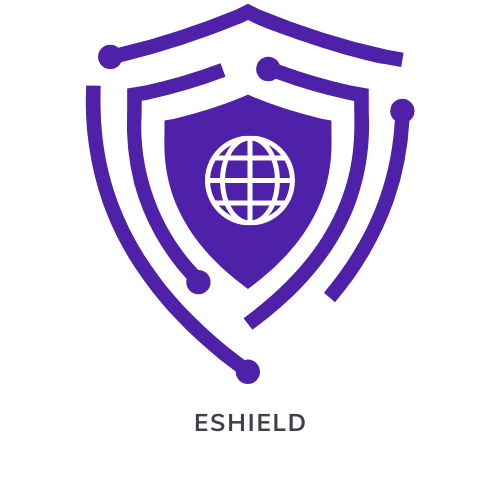Cyber Security UAE — Because Your Business Deserves More Than Just Basic Protection
In today’s digital landscape, businesses in the UAE are increasingly vulnerable to cyber threats. The rise in data breaches has made it imperative for organizations to adopt robust cyber security measures to protect their sensitive information.

As technology advances, hackers are becoming more sophisticated, making it crucial for businesses to stay ahead of these threats. Expert cyber security UAE solutions can provide the necessary protection, ensuring that businesses can operate securely and maintain the trust of their clients.
Key Takeaways
- Understanding the evolving landscape of cyber threats.
- The importance of robust cyber security measures for businesses.
- Expert solutions available in the UAE for enhanced security.
- Protecting against data breaches and cyber attacks.
- Maintaining client trust through secure operations.
The Evolving Cyber Threat Landscape in the UAE
The United Arab Emirates is facing an increasingly complex cyber threat landscape that demands robust and adaptive security measures. As the region continues to drive digital innovation and technological advancements, the risk of cyber attacks has escalated, posing significant threats to businesses, government entities, and critical infrastructure.
Current Cyber Security Statistics in the Emirates
The UAE is experiencing a surge in cyber attacks, with recent statistics highlighting the severity of the issue. According to a report, the UAE witnessed a 250% increase in cyber attacks between 2022 and 2023, with an average of 146 cyber attacks per organization per year.
| Type of Cyber Attack | Percentage of Total Attacks |
|---|---|
| Phishing | 43% |
| Ransomware | 27% |
| Malware | 21% |
| Other | 9% |
Why the UAE is a Prime Target for Cyber Criminals
The UAE’s strategic location, business-friendly environment, and rapid digital transformation make it an attractive target for cybercriminals. The country’s thriving economy and high-profile events also draw malicious actors seeking to exploit vulnerabilities for financial gain or to disrupt critical infrastructure.
Furthermore, the UAE’s increasing adoption of emerging technologies such as IoT, AI, and cloud computing expands the attack surface, creating new vulnerabilities that cybercriminals can exploit.
Understanding the Most Common Cyber Threats Facing UAE Organizations
Understanding the most common cyber threats is crucial for UAE organizations to strengthen their defenses. The UAE’s organizations face a myriad of cyber threats, each with its unique characteristics and potential impact.
Ransomware and Malware Attacks
Ransomware and malware attacks are among the most prevalent cyber threats in the UAE. Ransomware involves malicious software that encrypts a victim’s files, demanding a ransom for decryption. Malware, on the other hand, encompasses a broad range of malicious software designed to infiltrate and damage computer systems.
These attacks can lead to significant financial losses and operational disruptions. To mitigate these threats, organizations must implement robust security measures, including regular software updates and employee training.
Phishing and Social Engineering Tactics
Phishing and social engineering tactics are increasingly sophisticated, making them difficult to detect. Phishing involves fraudulent attempts to obtain sensitive information by masquerading as a trustworthy entity. Social engineering exploits human psychology to gain access to sensitive information or systems.
To combat these threats, UAE organizations must educate their employees on the dangers of phishing and social engineering, and implement advanced email filtering solutions.
Advanced Persistent Threats (APTs) in Critical Infrastructure
Advanced Persistent Threats (APTs) pose a significant risk to critical infrastructure in the UAE. APTs involve prolonged and targeted cyber attacks, often sponsored by nation-states, aimed at stealing sensitive information or disrupting operations.
To defend against APTs, organizations must adopt a multi-layered security approach, including network segmentation, continuous monitoring, and incident response planning.
The Impact of Cyber Attacks on UAE Businesses
As cyber attacks continue to escalate in the UAE, businesses are facing unprecedented challenges in protecting their assets and maintaining customer trust. The impact of these attacks is multifaceted, affecting various aspects of business operations.
Financial Consequences of Data Breaches
The financial implications of a data breach can be severe. Businesses in the UAE face significant costs associated with notifying and compensating affected customers, as well as investing in enhanced security measures to prevent future breaches. The average cost of a data breach in the region is substantial, with some reports suggesting figures running into millions of dirhams.
Reputational Damage and Customer Trust
Cyber attacks can lead to significant reputational damage, eroding customer trust and loyalty. When a business is breached, customers may lose confidence in the company’s ability to protect their personal data. Rebuilding this trust can be a long and challenging process, often requiring significant investment in marketing and public relations.
Operational Disruption and Recovery Challenges
Beyond financial and reputational impacts, cyber attacks can cause significant operational disruptions. Businesses may need to temporarily halt operations to contain and remediate the breach, leading to lost productivity and revenue. The recovery process can be complex, involving forensic analysis, system updates, and staff training to prevent future incidents.
In conclusion, the impact of cyber attacks on UAE businesses is far-reaching, with financial, reputational, and operational consequences. It is crucial for businesses to implement robust cyber security measures to mitigate these risks and ensure resilience in the face of evolving cyber threats.
Comprehensive Cyber Security UAE Solutions for Modern Businesses
Comprehensive cyber security solutions are essential for UAE businesses to safeguard their digital infrastructure. As the cyber threat landscape continues to evolve, organizations require robust and multi-faceted security measures to protect their assets.
Managed Security Services in the Emirates
Managed Security Services (MSS) have become a crucial component of cyber security strategies for UAE businesses. By outsourcing security operations to expert providers, organizations can benefit from advanced threat detection, incident response, and continuous monitoring. MSS providers in the UAE offer tailored solutions to meet the specific needs of businesses, ensuring compliance with local regulations and industry standards.
Security Operations Centers (SOCs) and 24/7 Monitoring
Security Operations Centers (SOCs) play a vital role in modern cyber security, providing 24/7 monitoring and incident response capabilities. SOCs in the UAE are equipped with advanced tools and staffed by experienced security professionals who can detect and respond to threats in real-time. This continuous monitoring ensures that businesses can quickly identify and mitigate potential security breaches, minimizing downtime and data loss.
Incident Response and Recovery Services
Despite robust security measures, cyber incidents can still occur. Incident Response and Recovery Services are critical in helping UAE businesses respond to and recover from security breaches. These services include rapid incident response, forensic analysis, and system recovery, ensuring that businesses can quickly restore operations and minimize the impact of an attack.
| Cyber Security Solution | Description | Benefits |
|---|---|---|
| Managed Security Services | Outsourced security operations | Advanced threat detection, compliance |
| Security Operations Centers (SOCs) | 24/7 monitoring and incident response | Real-time threat detection, rapid response |
| Incident Response and Recovery | Response to and recovery from security breaches | Minimized downtime, reduced impact |
Essential Cyber Security Technologies for UAE Organizations
The UAE’s rapidly growing digital economy demands cutting-edge cyber security solutions to safeguard against increasingly sophisticated cyber attacks. As organizations in the UAE continue to embrace digital transformation, they require robust cyber security technologies to protect their networks, endpoints, and cloud infrastructure.
Next-Generation Firewalls and Network Security
Next-generation firewalls (NGFWs) are a crucial component of modern cyber security infrastructure. These advanced firewalls provide enhanced network security by integrating traditional firewall functionality with modern features such as deep packet inspection, intrusion prevention, and application awareness. In the UAE, organizations are deploying NGFWs to protect their networks from sophisticated threats and ensure the integrity of their data.
Key benefits of NGFWs include:
- Improved threat detection and prevention
- Enhanced visibility into network traffic
- Better control over applications and user activity
Endpoint Protection and Mobile Device Security
Endpoint protection is critical in today’s mobile-first world, where employees use various devices to access corporate resources. UAE organizations are adopting advanced endpoint protection solutions that combine traditional antivirus capabilities with modern techniques such as behavioral analysis and machine learning to detect and prevent sophisticated threats.
Effective endpoint protection strategies include:
- Multi-layered security approaches
- Real-time threat detection and response
- Regular software updates and patch management
Cloud Security and Data Protection for Digital Transformation
As UAE businesses accelerate their digital transformation journeys, cloud security has become a top priority. Organizations are leveraging cloud security solutions to protect their data, applications, and infrastructure in the cloud. These solutions provide advanced threat protection, data encryption, and compliance management to ensure the security of cloud-based assets.
Key considerations for cloud security include:
- Data encryption and access controls
- Cloud security monitoring and incident response
- Compliance with relevant regulations and standards
Cyber Security Compliance and Regulations in the UAE
The UAE government has taken significant steps to enhance cyber security through the introduction of new regulations and compliance standards. As the country continues to develop its digital infrastructure, the importance of adhering to these regulations cannot be overstated.
Cyber security compliance in the UAE involves understanding and implementing various standards and regulations. One of the key frameworks is the UAE Information Assurance Standards, which provide guidelines for securing information across different sectors.
UAE Information Assurance Standards and National Cybersecurity Strategy
The UAE Information Assurance Standards are designed to ensure that organizations implement robust security measures to protect their information assets. The National Cybersecurity Strategy further complements these standards by outlining the country’s overall approach to cyber security.
As stated by the UAE government, “The National Cybersecurity Strategy aims to protect the country’s critical infrastructure and promote a culture of cyber security awareness among citizens and organizations.” This strategy is crucial for maintaining the integrity of the UAE’s digital ecosystem.
| Standard/Regulation | Description | Applicability |
|---|---|---|
| UAE Information Assurance Standards | Guidelines for securing information | Government and private sectors |
| National Cybersecurity Strategy | Overall approach to cyber security | National level |
| NESA Regulations | Security requirements for critical infrastructure | Critical infrastructure operators |
NESA and Regulatory Requirements for Critical Infrastructure
The National Electronic Security Authority (NESA) plays a crucial role in regulating cyber security for critical infrastructure in the UAE. NESA sets forth specific requirements that operators of critical infrastructure must follow to ensure the security of their systems.
NESA’s regulations are designed to protect the UAE’s critical infrastructure from cyber threats. Organizations operating in these sectors must comply with NESA’s requirements to avoid penalties and reputational damage.
International Standards and Frameworks Adopted in the UAE
In addition to local regulations, the UAE also adopts international standards and frameworks to enhance its cyber security posture. These include frameworks such as ISO 27001 for information security management.
Adopting international standards helps UAE organizations align with global best practices in cyber security, thereby enhancing their resilience against cyber threats.
Building a Strong Cyber Security Culture in Your Organization
Establishing a robust cyber security culture is crucial for organizations in the UAE to protect themselves against evolving cyber threats. A strong cyber security culture encompasses not just the technology and processes, but also the awareness and training of employees.
Employee Training and Awareness Programs for UAE Businesses
Employee training is a critical component of a strong cyber security culture. Regular training sessions and awareness programs can help employees understand the latest cyber threats and how to mitigate them. For instance, training programs can educate employees on how to identify phishing emails and avoid falling victim to social engineering tactics.
A well-informed workforce is better equipped to handle cyber threats, reducing the risk of data breaches and cyber attacks. UAE businesses can benefit from customized training programs that address specific regional threats and compliance requirements.
| Training Program | Description | Benefits |
|---|---|---|
| Phishing Simulation | Simulates phishing attacks to test employee awareness | Identifies vulnerabilities, improves employee response |
| Cyber Security Awareness | Educates employees on cyber security best practices | Enhances overall cyber security posture, reduces risk |
Developing Effective Security Policies and Procedures
Developing effective security policies and procedures is another crucial aspect of building a strong cyber security culture. These policies should be clear, concise, and communicated to all employees. They should also be regularly reviewed and updated to reflect changing cyber security landscapes.
Effective security policies can help UAE organizations respond quickly and effectively to cyber incidents, minimizing the impact on business operations.
By combining employee training, awareness programs, and robust security policies, UAE businesses can significantly enhance their cyber security posture and protect their digital assets.
Selecting the Right Cyber Security Partner in the UAE
Selecting a reliable cyber security partner in the UAE can be a game-changer for organizations looking to strengthen their digital defenses. With numerous options available, it’s essential to evaluate potential partners based on their expertise, service offerings, and understanding of the local cyber security landscape.
Evaluating Expertise and Service Offerings
When assessing a cyber security partner, consider their expertise in handling UAE-specific cyber threats and the range of services they offer. Look for partners who provide comprehensive solutions, including managed security services, incident response, and security consulting.
Local Knowledge and Global Best Practices
A cyber security partner with local knowledge and global best practices can offer tailored solutions that meet the unique needs of UAE businesses. They should be well-versed in local regulations and compliance requirements, ensuring that your organization remains compliant with UAE cyber security laws.
Cost Considerations and ROI for Security Investments
When evaluating cyber security partners, it’s crucial to consider the cost of their services and the potential return on investment (ROI). A reliable partner should be able to demonstrate how their solutions can help reduce the financial impact of cyber attacks and improve your organization’s overall security posture.
| Criteria | Description | Importance Level |
|---|---|---|
| Expertise in UAE Cyber Security | Understanding of local cyber threats and regulations | High |
| Comprehensive Service Offerings | Range of services including managed security and incident response | High |
| Local Knowledge and Global Practices | Ability to apply global best practices to local context | Medium |
| Cost and ROI | Cost-effectiveness of solutions and potential ROI | High |
Conclusion: Strengthening Your Digital Defense in the UAE
As the UAE continues to evolve into a digital economy, strengthening your digital defense is crucial to protect against the ever-changing cyber threat landscape. Implementing a robust UAE cyber security strategy is essential to safeguard your organization’s assets and maintain customer trust.
A comprehensive cyber security strategy involves multiple layers of protection, including advanced technologies and expert solutions. By understanding the most common cyber threats and their impact on businesses, you can make informed decisions about your cyber security investments.
Partnering with a trusted cyber security provider can help you stay ahead of emerging threats and ensure compliance with regulatory requirements. By prioritizing UAE cyber security and adopting a proactive approach to digital defense, you can minimize the risk of cyber attacks and maintain a competitive edge in the market.
FAQ
What are the most common types of cyber threats facing UAE organizations?
UAE organizations are commonly threatened by ransomware, phishing, and advanced persistent threats (APTs), which can have devastating consequences if not properly mitigated.
How can businesses in the UAE protect themselves against cyber attacks?
Businesses in the UAE can protect themselves by implementing robust cyber security measures, including managed security services, security operations centers, and incident response and recovery services.
What is the importance of employee training and awareness programs in cyber security?
Employee training and awareness programs are crucial in building a strong cyber security culture within organizations, enabling employees to identify and respond to potential cyber threats effectively.
What are the key considerations when selecting a cyber security partner in the UAE?
When selecting a cyber security partner in the UAE, businesses should evaluate the partner’s expertise, their understanding of local regulations, and the potential return on investment in cyber security measures.
What are the UAE Information Assurance Standards, and how do they impact businesses?
The UAE Information Assurance Standards are a set of guidelines that outline the requirements for information assurance in the UAE, and businesses must comply with these standards to ensure the security and integrity of their data.
How can organizations in the UAE ensure compliance with international cyber security standards and frameworks?
Organizations in the UAE can ensure compliance with international cyber security standards and frameworks by adopting globally recognized best practices and staying up-to-date with the latest regulatory requirements.
What is the role of Security Operations Centers (SOCs) in cyber security?
Security Operations Centers (SOCs) play a critical role in cyber security by providing 24/7 monitoring and incident response capabilities, enabling organizations to detect and respond to cyber threats in real-time.
What are the financial consequences of a data breach for UAE businesses?
The financial consequences of a data breach for UAE businesses can be severe, including costs associated with incident response, data recovery, and regulatory fines, as well as reputational damage and loss of customer trust.


